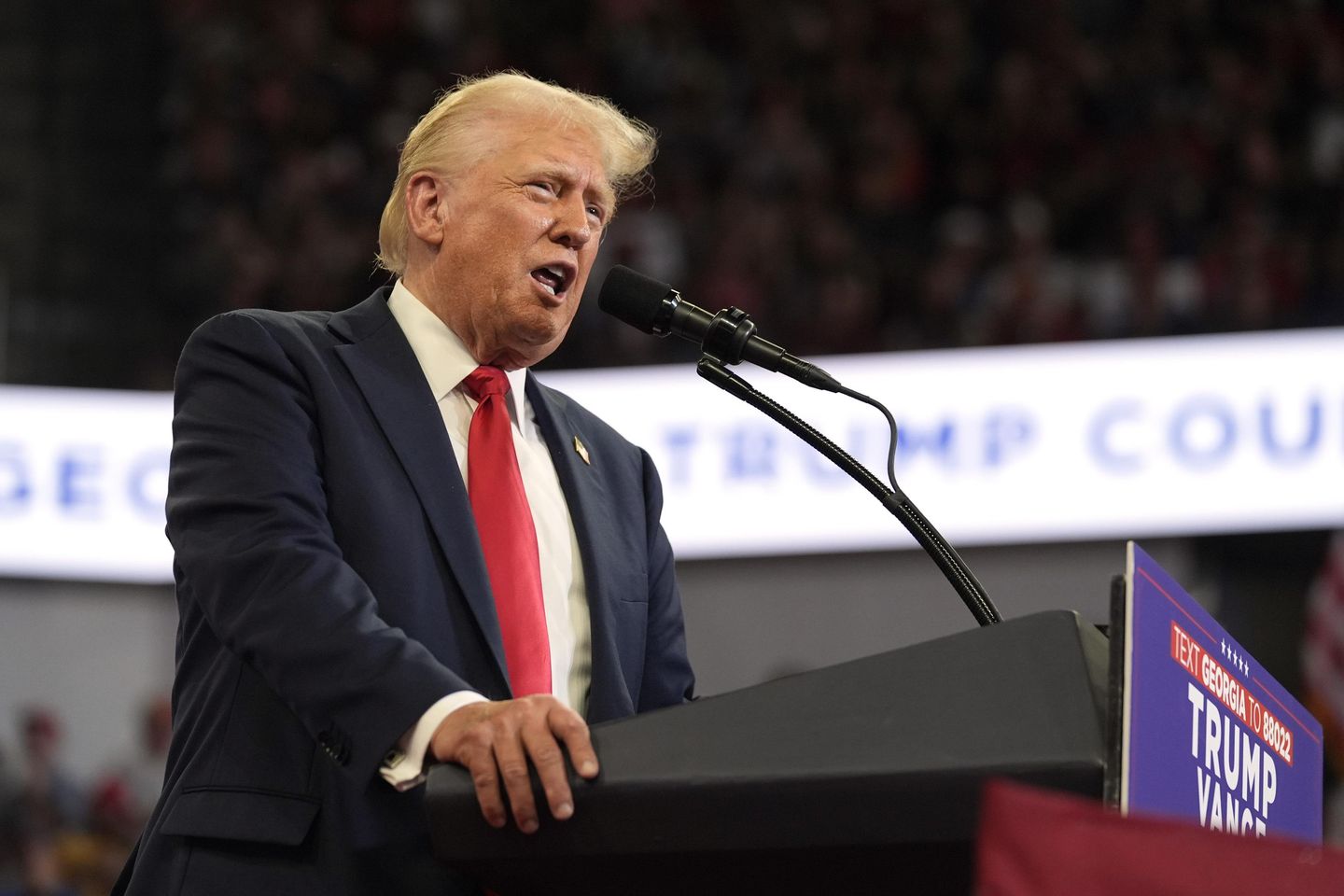Former President Donald Trump made his way to Georgia on Saturday, once again stirring up controversy as he continues to push his baseless claims of election fraud in the 2020 presidential election. Trump’s visit to the key swing state comes as he seeks to avenge his narrow loss in Georgia, a state that played a crucial role in determining the outcome of the last election.
During his campaign event in Georgia, Trump took aim at the state’s Republican governor, Brian Kemp, accusing him of not doing enough to support his efforts to overturn the election results. Trump has repeatedly claimed, without evidence, that widespread voter fraud cost him the election in Georgia and other battleground states.
In his speech, Trump railed against Kemp and other GOP officials, accusing them of being complicit in what he describes as a stolen election. The former president’s attacks on fellow Republicans have only served to further divide the party, as many in the GOP have distanced themselves from Trump’s baseless claims and rhetoric.
Despite numerous recounts and audits that have confirmed the integrity of the 2020 election, Trump has refused to accept the results and continues to promote the false narrative of election fraud. His relentless pursuit to overturn the election has not only strained relationships within the Republican Party but has also raised concerns about the future of democracy in America.
Trump’s insistence on relitigating the 2020 election has overshadowed any discussion of policy or key issues facing the country. Instead of focusing on the pressing challenges of the day, such as the ongoing COVID-19 pandemic, economic recovery, and national security, Trump remains fixated on his loss and the perceived injustices he believes he has faced.
The former president’s refusal to move on from the 2020 election has also cast a shadow over the upcoming midterm elections, where Republicans are hoping to regain control of Congress. Trump’s continued presence in the party has both energized his base and alienated moderate voters, creating a rift that could have long-term consequences for the GOP.
As Trump continues to sow doubt about the legitimacy of the electoral process, he undermines the very foundation of democracy and erodes trust in the electoral system. His relentless attacks on the media, election officials, and political opponents only serve to further polarize an already deeply divided nation.
Despite facing numerous legal challenges and setbacks in his efforts to challenge the election results, Trump remains undeterred in his quest to overturn the outcome of the 2020 election. His refusal to accept defeat has not only damaged his own reputation but has also tarnished the integrity of the presidency and the democratic process.
In Georgia, a state that has become a battleground for Trump and his supporters, the former president’s visit reignited tensions between him and state officials. Kemp, who has been a target of Trump’s ire since the election, has faced mounting pressure from the former president and his allies to take action to address the alleged voter fraud.
Trump’s rally in Georgia was met with both fervent support from his loyal followers and condemnation from critics who see his continued efforts to overturn the election as a threat to democracy. The former president’s ability to command such a devoted following, despite his divisive rhetoric and false claims, highlights the deep divisions that exist within American society.
As Trump’s rally came to a close, the former president once again doubled down on his baseless claims of election fraud, promising his supporters that he would continue to fight to “Make America Great Again.” But as he continues to wage this battle, the question remains: at what cost to the country and its democratic institutions?









